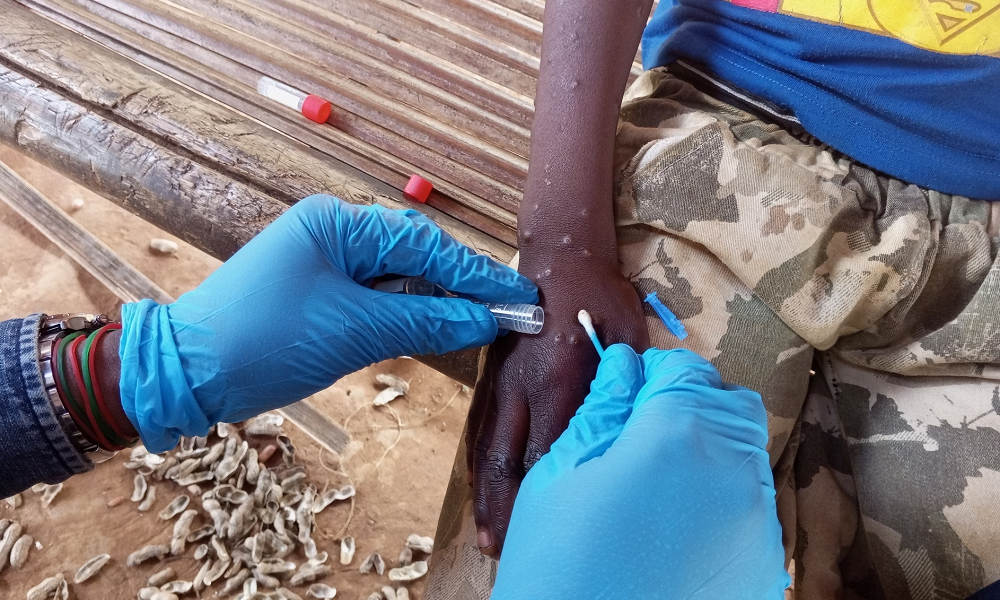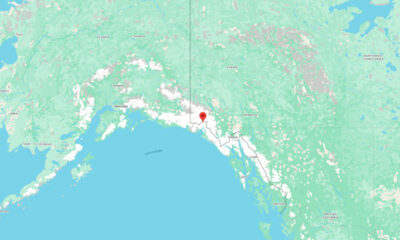World
Sweden reports first case outside Africa of new mpox strain

A person in Sweden has tested positive for the more infectious form of mpox which was first found in DR Congo, making it the first known case outside Africa, according to Swedish health officials. It comes just a day after WHO declared it a global emergency.
The patient sought care in the Stockholm region after staying in a part of Africa which is experiencing a major outbreak of the new strain of mpox, which was previously known as monkeypox. Specific details were not released.
“This case does not require any additional infection control measures in itself, but we take the outbreak of clade I mpox very seriously,” said Magnus Gisslén, the state epidemiologist at Sweden’s Public Health Agency. “We are closely monitoring the outbreak and we are continuously assessing whether new measures are needed.”
Swedish officials said a single case does not affect the risk to the general population, adding that occasional imported cases may continue to occur. Sweden previously reported about 300 cases of the older mpox variant.
“The confirmation of mpox Clade 1 in Sweden is a clear reflection of the interconnectedness of our world,” WHO said in a statement quoted by AFP. “There are likely to be further imported cases of Clade 1 in the European region over the coming days and weeks.”
The news came just a day after the World Health Organization declared mpox a Public Health Emergency of International Concern. And earlier this week, Africa CDC issued its first-ever public health emergency, enabling it to mobilize resources across the continent.
At least 2,863 confirmed cases and more than 17,000 suspected cases have been reported across 13 African nations so far this year, including previously unaffected countries such as Burundi, Kenya, Rwanda and Uganda. Many cases were found in the Democratic Republic of the Congo. Out of the confirmed cases, at least 517 have died.
Of particular concern is clade 1b, which is causing more severe disease compared to the variant which spread around the world in 2022. It’s also believed to be more infectious. Clade 2b mainly spread through sexual contact while the new strain is more commonly spread through other contact routes, including close contacts within households.
Several vaccines have already been approved for mpox but only few people have received them so far, especially in Africa. WHO has triggered the process for Emergency Use Listing for two vaccines to make them more accessible, particularly in lower-income countries.


-

 Health1 week ago
Health1 week agoFrance confirms 2 MERS coronavirus cases in returning travelers
-

 US News5 days ago
US News5 days agoMagnitude 7.0 earthquake strikes near Alaska–Canada border
-

 Entertainment1 week ago
Entertainment1 week agoJoey Valence & Brae criticize DHS over unauthorized use of their music
-

 Legal2 days ago
Legal2 days agoShooting at Kentucky State University leaves 1 dead and another critically injured
-

 Legal1 week ago
Legal1 week agoWoman detained after firing gun outside Los Angeles County Museum of Art
-

 Health1 week ago
Health1 week agoEthiopia reports new case in Marburg virus outbreak
-

 Business1 day ago
Business1 day agoUnpublished TIME cover suggests AI leaders may be named Person of the Year
-

 Entertainment1 week ago
Entertainment1 week agoSeveral countries withdraw from 2026 Eurovision after Israel is allowed to participate



